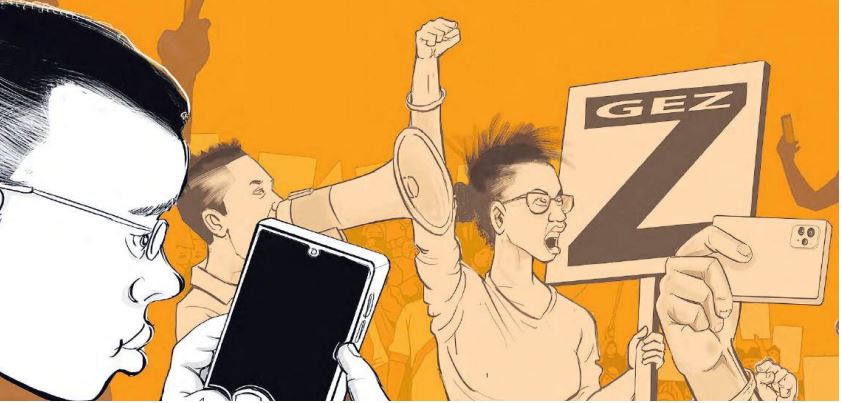
There should the boundaries of freedom of expression lie, and how far is too far?
Freedom of expression is a fundamental right enshrined in Kenya’s 2010 Constitution, allowing individuals to share their thoughts, opinions, and information.
This right is crucial for a thriving democracy, yet recent trends among Kenyan youth, particularly on social media, reveal concerning instances of its misuse.
Posts mocking public officials, spreading hate speech, or sharing offensive content have become alarmingly frequent.
A particularly troubling trend involves depicting leaders as silhouettes or cartoonish figures in ways that are dehumanizing and disrespectful.
Such actions cross the line of constructive criticism and often breach legal boundaries.
While freedom of expression is protected, it must be exercised with responsibility and respect. Respect for leaders and others is essential to ensure this right does not devolve into harmful behaviour with serious real-world consequences.
The Kenyan Constitution, under Article 33( 1 ), guarantees every individual the right to freedom of expression, including the freedom to seek, receive, and share information or ideas.
This provision is vital for fostering an open, democratic society where individuals can engage in discussions that shape the nation’s future. However, this freedom is not absolute.
Article 33( 2 ) explicitly excludes expressions that involve hate speech, discrimination, incitement to violence, or propaganda of war.
Social media has provided a platform for youth to engage in national discourse, but it has also facilitated the unchecked spread of hate speech, malicious content, and blatant disrespect toward public figures.
For instance, posts portraying leaders in offensive ways, such as depicting the President in a coffin, have far-reaching implications.
Such content not only undermines public order but also violates the law, including provisions under the Computer Misuse and Cyber Crimes Act.
While some may view these posts as expressions of frustration, they can lead to legal consequences, including charges of hate speech, defamation, or threatening national security.
Freedom of expression is not just about the right to speak — it comes with the duty to exercise that right responsibly.
Respect is fundamental in any dialogue, particularly when addressing people in positions of power or authority. Kenyan society, deeply rooted in traditional values, has always emphasised respect for leaders, elders, and public figures.
Disrespectful speech, even when presented as satire or criticism, can escalate tensions and deepen divisions.
The younger generation must understand that exercising freedom of expression requires mindfulness about its impact on others.
Respect is a cornerstone of social harmony, and ignoring it only fuels conflict. Parents, educators, and community leaders must reflect on where societal values have eroded and take steps to instil respect and dignity in communication.
Traditional values in many Kenyan communities emphasise humility, patience, and dignity in public discourse.
These values can serve as a moral compass for youth in navigating the complexities of modern communication.
By incorporating these principles into both online and offline interactions, young people can express themselves responsibly while promoting peace and understanding.
Kenyan youth have immense potential to drive social progress and contribute to national development.
Social media, if used constructively, can be a powerful tool for sharing ideas, fostering meaningful conversations, and shaping public opinion.
Instead of mocking leaders or spreading harmful content, young people should use their voices to spark inclusive, informative discussions aimed at creating solutions.
Freedom of expression should empower individuals to foster positive change — not incite division or hatred. Freedom of expression is a cornerstone of Kenya’s democracy, but it is not without limits.
Its misuse, particularly through disrespectful or harmful actions, undermines the integrity of democratic institutions and societal cohesion.
Kenyan youth must recognise that respect is integral to effective communication. By balancing their right to free expression with responsibility, they can contribute positively to national discourse and unity.
The government’s enforcement of constitutional limits on freedom of expression should not be seen as an attack on individual rights, but as a measure to ensure these rights are exercised responsibly.
Constructive dialogue and creative expression, when grounded in respect for others, are essential for building a stable and progressive society.
The Government of Kenya has observed with concern the increasing use of technology to spread misinformation and disinformation, particularly on digital platforms.
Such activities, which leverage advanced tools like AI-generated emails and deep fakes, aim to undermine the credibility of the government and harm the nation’s reputation.
While internal differences are inevitable, taking these disputes to the international stage is neither productive nor patriotic.
Actions that portray our country negatively abroad not only damage our foreign relations but also pose risks to the welfare of Kenyans living and working overseas.
They could also discourage potential investors whose contributions are vital for creating jobs and growing our economy.
The government calls upon all Kenyans to refrain from actions that tarnish the country’s image.
Let us embrace constructive dialogue to address our differences and uphold Kenya’s dignity on the global stage.
The government is committed to engaging with all citizens and stakeholders to resolve concerns and strengthen national unity.
This message was highlighted by the Government spokesman, Isaac Mwaura, during a media address at the Kenyatta International Conference Centre on January 20.
Concerned parent Erick Bett has highlighted the challenges that today’s parents face. He pointed out that parents are now raising sophisticated children who are always online, constantly using various social media platforms.
He shared a story from a neighbour who experienced similar frustrations during the recent holiday.
The neighbour mentioned that he had to buy 10 sufurias because his children would fill them with water, get distracted by their phones, and forget about the cooking pots.
As a result, the water would boil away, causing the sufurias to burn. He added that these children rarely sleep and are constantly online.
In conclusion, the message is clear: respect for freedom of expression is vital, but it must be exercised responsibly.
By Rose Chepkoech and Samuel Maina. The writers work
in the Office of
the Government
Spokesperson.



